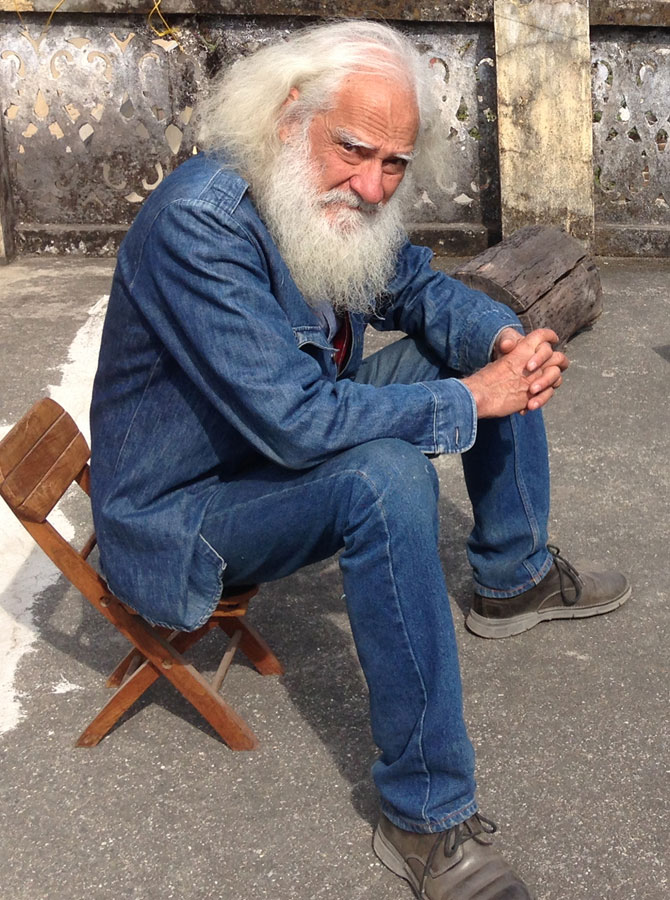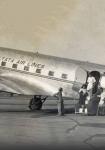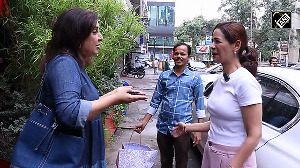'If you go to some of their homes, you won't notice anything Indian -- nowhere a little god, or the smell of spices in the kitchen.'
'Nothing in their dress, no trace of an accent.'
'Even the names have been changed: Motilal becomes 'Mac;' Harish becomes 'Harry'.'
Exclusive! An excerpt from Suketu Mehta's latest novella
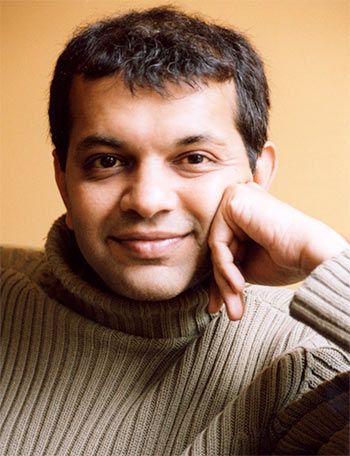 Suketu Mehta is fascinated with the way many immigrants consciously or unconsciously attempt to erase the past in the new world.
Suketu Mehta is fascinated with the way many immigrants consciously or unconsciously attempt to erase the past in the new world.
They erase the symbols of their roots and sometimes even their memories. Just like Mahesh, the lead character in Mehta's new work, What Is Remembered.
Mehta began writing the novella -- published 12 years after his iconic Maximum City: Bombay Lost And Found -- in the 1990s in a bout of homesickness "not just for India, but for Jackson Heights, which is a kind of middle world between India and America," he tells Rediff.com's Monali Sarkar.
As he wrote, taking Mahesh through Jackson Heights -- the very Indian neighbourhood of New York City and his first home in America -- and memories of India, Mehta realised that the novella format was just right for the story: "Something longer than a short story, which is merely a taster, but shorter than a novel, perfect for our harried times."
What Is Remembered is published by Juggernaut Books and can be read on its app.
In an e-mail interview, Mehta discusses the novella and how he feels about new mediums of getting his story to the reader.
In What Is Remembered, Mahesh -- consciously and unconsciously -- leaves his desi-ness behind from the moment he steps onto American soil. Have you met many people like Mahesh? As someone who clearly did not do that, how do you react to such people?
I've become fascinated with the way many immigrants, including Indians, consciously or unconsciously attempt to erase the past in the new world.
If you go to some of their homes, you won't notice anything Indian -- nowhere a little god, or the smell of spices in the kitchen.
Nothing in their dress, no trace of an accent. Even the names have been changed: Motilal becomes 'Mac'; Harish becomes 'Harry'.
But sometimes, the memories are too strong, and the smallest thing -- a morsel of food, a snatch of music -- can trigger memories which overwhelm the carefully built fortifications around the new life, overpower the sentries around the persona, rush into the innermost chamber of the heart and capture you, drag you back as prisoner or emperor back to where you came from.
So Mahesh, in my story, experiences a flood of these memories, which lead him to some sort of reconnection. Whether it's genuine, or whether it will last, is left for the reader to interpret.
Did you one day wake up and realise that you had forgotten something about life in India? A name? A face? A memory that you couldn't quite ferret out?
Was there ever a time when you wanted to forget?
A writer is a voyeur into invented lives.
Although many of the scenes in the story are based on events in my own life, I've never experienced this kind of amnesia, or any desire to change my name or to distance myself from India.
But, yes, on some of my trips, when I've gone back to Bombay (now Mumbai), I';ve wanted to run back to America.
I write about this in Maximum City: On my first year back in Bombay, when I saw my children get sick by the bad air, the bad water, I wanted to pack up and run back to New York.
And the more I lived in India, the more I realised that America was my home too. That there was a huge part of me that was American. And that there was no contradiction in being both.
What do you remember about that moment when you first stepped off the plane in New York? What were your first memories of New York, of Jackson Heights?
I have two memories of first coming to JFK (the John F Kennedy International Airport in New York) in 1977: Someone rebuking my mother for cutting the line in customs, and a huge Alexander Calder mobile twirling in the international arrivals lounge.
In our first week in the studio apartment my father had rented in Jackson Heights, the landlord cut the power to our apartment because there were too many people in it (our family of five) and he wanted us out. That was our welcome to America.
I hated Jackson Heights when my family first brought me there. At the age of 14, I was thrown into an all-boys, all-white Catholic school and I was a representative of the waves of minorities that now dominate the area.
So I was bullied and hated. The teachers called me a pagan. One of the kids pushed me down a flight of stairs.
But now, Jackson Heights is the most diverse neighbourhood in the entire United States. There are lots of desis everywhere in the area, including in my old school.
We overwhelmed the racists by sheer force of numbers.

Mahesh asks the Expert Liar, 'Tell me, my friend, what I should say to my country about why I left.' Do you believe there always has to be a reason to leave? Can't one just leave... just because...
Anyone that, after a certain age, makes the decision to leave country and family to move to another country -- especially from the world's oldest continuing civilisation to the newest -- has to have a reason.
It's not accidental, like ending up on a plane to New York instead of to Baroda. And when one leaves, one has to explain the reason for one's desertion, as my father had to with my grandfather, who could never understand my father's decision.
In fact, I think my father never quite understood his decision. He's given his children various reasons, like he left because he saw Disneyland on a trip once and thought his children would like to visit it too; or that his kids should be drinking unadulterated milk; or that the family diamond business needed to be expanded.
The point is, we rationalise our desertion in a variety of ways, but each of us NRIs continually revisit the decision all our lives and come up with different rationalisations each time.
To me, the Expert Liar appears to be the mind and the 'gaunt man... with the agitated eyes' the heart. Is that the right takeaway?
That's an interesting takeaway, and certainly a valid one. But that does not rule out other interpretations of the story, and I hope each reader goes away with their own meaning.
I meant the story to be open-ended; we don't quite know if Mahesh has successfully recovered his mother's name or not at the end.
But isn't that the nature of memory: Contradictory, confusing, overwhelming.
I meant the story to be a provocation rather than an explanation.
Do you find the burden of 'too much history' a common trait among those who have left India -- or their country of origin -- behind?
It's not just among Indians.
Most people who have come to America over the centuries are running away from history, personal or political.
This country (America), unlike Europe, affords the immigrant the possibility to forge an entirely new history.
But there are people who live here who carry the burden of their history with them -- such as the Indians who live in a little Indian cocoon or bubble wherever they go, whether it's Jackson Heights or Silicon Valley, never having non-Indian friends, rarely partaking of non-Indian culture, with their TV always playing Bollywood films or soap operas, their dining excursions only to Indian restaurants.
I remember, when we lived in Jackson Heights, my uncle from Bombay visited us and advised me, 'Take the best from the East and the best from the West.'
It was sound advice, and implicit in it was the admission that the West also had something to teach us; that it wasn't just important to preserve our Indian values but to admit other values into our minds.
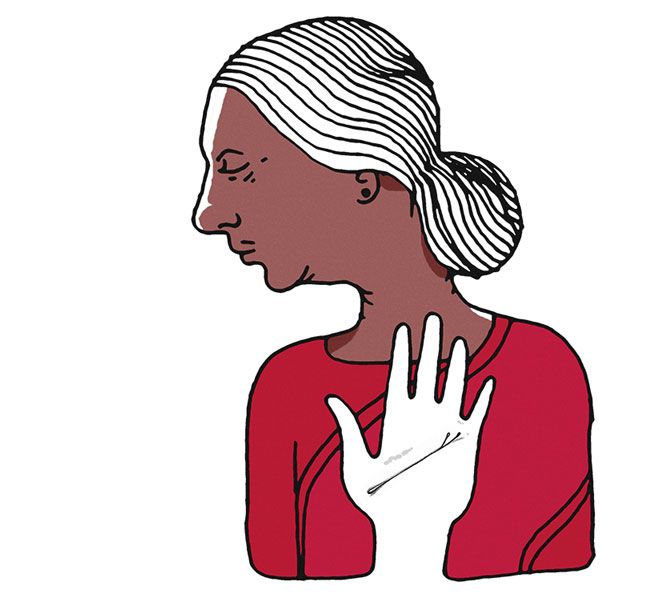
It is a paradox: This desperate desire among some who migrate to leave behind family ties and then feel the equally desperate angst of alienation.
The first stage of migration is claiming your place in the new country; soon after comes alienation.
You realise it on your first holiday back home. You realise that your leaving has consequences; you can never go back to what you were.
You are not Indian in the same way your friends who didn't leave are.
Your sense of the world has expanded; you now enjoy an Italian carbonara and a New Zealand pinot noir; you no longer know the words to the Gayatri Mantra.
This sense of alienation is much more pronounced among people like me, who left India in their teens, than among people who left for college or graduate school.
For us, we never finished growing up in India, and we were never well in our skins in the country we adopted, so we always went back and forth like a pendulum, attempting to compensate for lost time.
It's only when I moved back to Bombay to live there to write my book, and was accepted back in every way as an Indian, a Bombayite, that I realised that I could move back into the world, with confidence.
Would it be right to call What Is Remembered a return to magic realism? Can you tell us more about your journey, your inspirations in this genre since the time you were a student of fiction and doing a lot of magic-realist writing.
Gabriel Garcia Marquez once said that 'magic realism' is the realism of Latin America, because the magical is everyday there.
I prefer the term surrealism, or super-realism, for the events in this story.
We come from a background where the mythic and the quotidian are interwoven in everyday life.
In some ways, we are a race of dreamers and fantasists, because we've all been raised on the epics and on Bollywood films.
I studied fiction at the Iowa Writers Workshop and a lot of my earlier stories had this playfulness, this element of fantasy.
When I wrote nonfiction, all of this had to be cut out and so it was a relief to let the mind free again, to let it play with possibility.
It was, literally, fantastic.
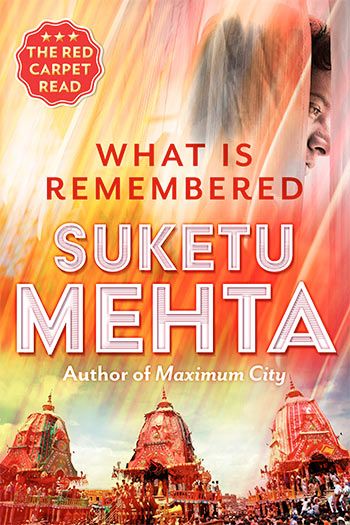 What are your favorite books/essays about the Diaspora's experience in exile?
What are your favorite books/essays about the Diaspora's experience in exile?
- Akhil Sharma's Family Life;
- Mohsin Hamid's The Reluctant Fundamentalist;
- V S Naipaul's A House For Mr Biswas;
- Jhumpa Lahiri's The Lowland
What are your favorite books/essays about India?
Naipaul's nonfiction trilogy about India, especially A Million Mutinies Now, Salman Rushdie's Midnight's Children, Upamanyu Chatterjee's English, August, and hundreds of others.
What Is Remembered is being published solely on the Juggernaut app.
Obviously, you are okay with that medium, but was it an easy transition? How do you feel about seeing your work in this medium when you have held the hard copy of your book in the past?
I started writing What Is Remembered in a bout of homesickness in the 1990s. Then I realised I was homesick, not just for India, but for Jackson Heights, which is a kind of middle world between India and America. Wembley in London occupies a similar position, these bridges between that world and this, between past and present.
I didn't know if it would grow into a full-fledged novel; at some point, I realised that the length was perfect.
I've always liked the novella format -- Saul Bellow's Seize The Day, Fitzgerald's The Great Gatsby, or Mohsin Hamid's The Reluctant Fundamentalist come to mind.
Something longer than a short story, which is merely a taster, but shorter than a novel, perfect for our harried times.
And besides, I realised I'd said what I wanted to say and didn't want to say any more. So, when Chiki Sarkar (founder and publisher, Juggernaut Books) asked me if I had anything that would be suitable for reading on a phone, this story immediately came to mind.
I like the idea of the story reaching many more people than would normally read a book (in India, a book that sells 3,000 to 5,000 copies still qualifies as a bestseller, but millions read things on their cell phones).
I'm a storyteller; I don't care what medium my audience gets my story on, whether it's on paper, on a screen, or in a podcast.
What Is Remembered is also available as a podcast, and will shortly be published as a physical book by Juggernaut.
~ Exclusive! An excerpt from Suketu Mehta's latest novella
Illustrations: Dominic Xavier/Rediff.com




